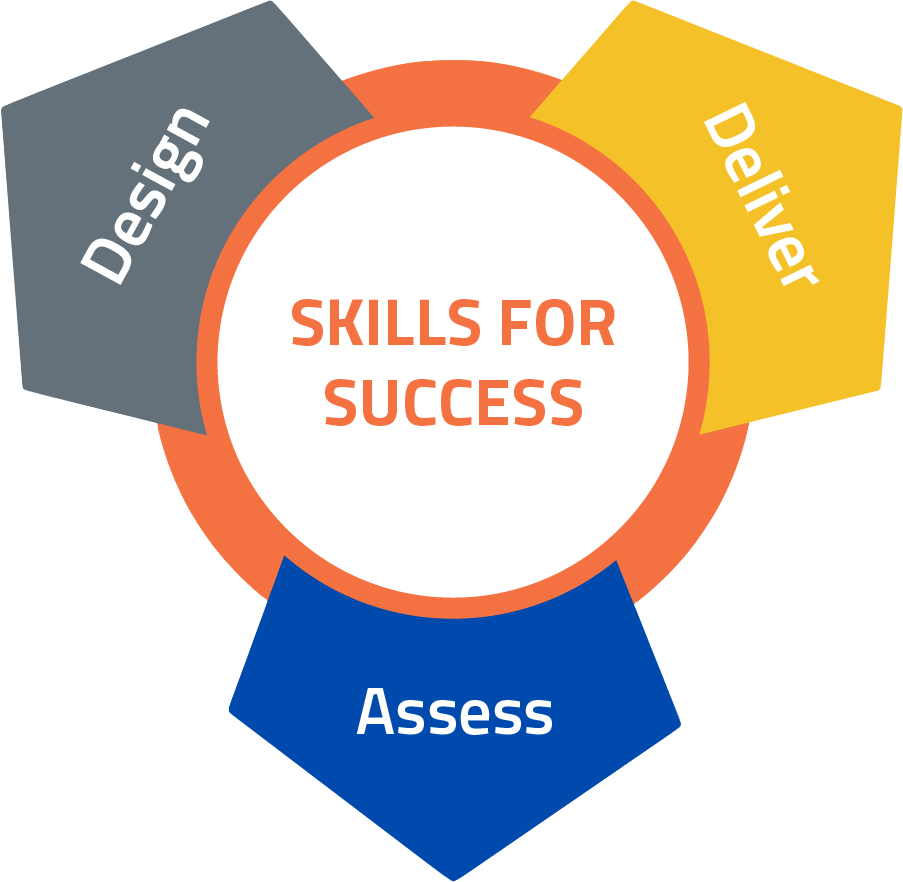Learner-centred Education is a style of teaching that puts the participant at the centre of learning by actively involving them in the learning process while the teacher takes the role of facilitator.
Metacognition
Metacognition is the awareness of thinking about thinking. It helps participants understand their own learning processes.
- Teaching Metacognitive Skills. https://uwaterloo.ca/centre-for-teaching-excellence/teaching-resources/teaching-tips/metacognitive
- Owen, D., & Vista, A. (2022, March 9). Strategies for teaching metacognition in classrooms. Brookings. https://www.brookings.edu/blog/education-plus-development/2017/11/15/strategies-for-teaching-metacognition-in-classrooms/
- Bingham, B. E., Coulter, C., Cottenie, K., & Jacobs, S. R. (2021). A Metacognitive Instructional Guide to Support Effective Studying Strategies. The Canadian Journal for the Scholarship of Teaching and Learning, 12(1). https://doi.org/10.5206/cjsotl-rcacea.2020.3.8318
- metacognition. LearnAlberta.ca. (n.d.). https://www.learnalberta.ca/metacognition
Prior Knowledge
Prior knowledge is the knowledge an individual has before learning about a new topic. A participants understanding of new material can be improved by taking advantage of their prior knowledge before dealing with new material.
-
The recognition of prior learning in adult basic education . OECD. (n.d.). https://www.oecd.org/els/emp/skills-and-work/adult-learning/Prior_learning.pdf
Problem-based Learning
Problem-based learning (PBL) is a learner-centered approach in which participants learn about a subject by working in groups to solve an open-ended problem.
- Karge, B. D., Phillips, K. M., Jessee, T., & McCabe, M. (2011). Effective Strategies for Engaging Adult Learners. Journal Of College Teaching & Learning, 8(12), 53-56. http://ezproxy.lib.ryerson.ca/login?url=http://search.ebscohost.com/login.aspx?direct=true&db=eric&AN=EJ952420&site=ehost-live
- Problem Based Learning.
Proficiency Scales
Proficiency scales are used to describe participants’ learning and progression along a continuum of growth. They are used to identify areas of strength and areas for improvement.
- Skill components and proficiency levels. Employment and Social Development Canada. https://www.canada.ca/en/services/jobs/training/initiatives/skills-success/learning-steps.html
- Research report to support the launch of Skills for Success: Structure, evidence, and recommendations: Final report. SRDC. https://www.srdc.org/publications/Research-report-to-support-the-launch-of-Skills-for-Success-Structure-evidence-and-recommendations-Final-report-details.aspx
Research Methods
Research methods refer to the way of collecting and analyzing data as well as the tools that are used when researching. These can be either qualitative (experiences, emotions, behaviours) or quantitative (numerical data, measurements, statistical analysis).
- Federighi, Paolo. (2019). Research Methodology in Adult Learning and Education. Journal of Educational Sciences. 39. 58-73. 10.35923/JES.2019.1.05.
Scaffolding
- Sabbott. (2015, April 6). Scaffolding definition. The Glossary of Education Reform. https://www.edglossary.org/scaffolding/
- Digital Promise. (2016). Designing Technology for Adult Learners: Support and Scaffolding. http://digitalpromise.org/wp-content/uploads/2016/09/designing_-technology.pdf
- Salyers, Vincent & Carter, Lorraine & Cairns, Steve & Durrer, Luke. (2014). The Use of Scaffolding and Interactive Learning Strategies in Online Courses for Working Nurses: Implications for Adult and Online Education. Canadian Journal of University Continuing Education. Available online at: http://ejournals.library.ualberta.ca/index.php/cjuce-rcepu/article/view/22199. 1-26. 10.21225/D59S3Z.
Storytelling
Storytelling and narrative learning teaches through stories or by reciting a series of events which help support both teaching and learning.
- Clark, M. C., & Rossiter, M. (2006). “Now the Pieces Are in Place…”: Learning through Personal Storytelling in the Adult Classroom. New Horizons In Adult Education & Human Resource Development, 20(3), 19-33. https://files.eric.ed.gov/fulltext/EJ983780.pdf
- Caminotti, E., & Gray, J. (2012). The Effectiveness of Storytelling on Adult Learning. Journal Of Workplace Learning, 24(6), 430-438. https://www.researchgate.net/publication/275076005_The_effectiveness_of_storytelling_on_adult_learning
- Boris, V. (2019, February 4). What makes storytelling so effective for learning? Harvard Business Publishing. Retrieved April 21, 2022, from https://www.harvardbusiness.org/what-makes-storytelling-so-effective-for-learning/
Task-based Learning
In Task-based learning, participants learn by applying their skills to real-life, workplace tasks. Tasks are contextualized to the participants’ goals and interests using authentic contexts. Tasks typically require the integrated use of multiple skills.
-
Task-based learning approach – how to use task-based learning. OnTESOL. (n.d.). https://ontesol.com/task-based-learning/
- Practitioner Guide to Task-Based Programming (2011). Ontario Ministry of Training, Colleges and Universities. http://www.tcu.gov.on.ca/eng/eopg/publications/OALCF_Task-Based_Prog_Mar_11.pdf
- Task-Based Activities for Literacy and Basic Skills. QUILL. https://taskbasedactivitiesforlbs.ca/
Zone of Proximal Development
Zone of proximal development is defined as the space between what a participant can do without assistance and what they can do with guidance or in collaboration with more capable peers.
- Eun, B. (2019). The zone of proximal development as an overarching concept: A framework for synthesizing vygotsky’s theories. Educational Philosophy and Theory, 51(1), 18-30. https://doi.org/10.1080/00131857.2017.1421941
